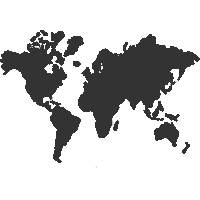




Reviewing procedure of scientific articles submitted for publication in «Annales Neophilologiarum»:
1. Editor of the issue make an initial assessment of the text submitted from the point of view of its conformity with the profile of the Journal and the basic requirements concerning the scientific methodology and input. Articles that do not comply with publication requirements are rejected.
2. The articles that have been accepted are sent to two independent reviewers who are affiliated with an academic institution that has to be different from the one represented by the author. The reviewers should reveal any conflict of interest, in particular:
3. The articles should be reviewed anonymously (double-blind review process).
4. The current list of reviewers is published in each issue and on the Journal’s website, but the surnames of reviewers of a particular article are not revealed.
5. Rules of assessing articles and a reviewing form are made public on the Journal’s website.
6. Reviews are in written form and are basis for accepting or rejecting an article. If there is a controversy the final decision is made by the thematic editors together with the Scientific Council of "Annales Neophilologiarum".
7. After the author(s) receive(s) the reviews they are obliged to proofread the text and take the reviewers’ comments – if there are any – into consideration.
Reviewers:
dr hab. Marian Bielecki, prof. UWr. (Uniwersytet Wrocławski, Polska), dr hab. Halina Chodurska, prof. UP (Uniwersytet
Pedagogiczny im. KEN w Krakowie, Polska), dr hab. Katarzyna Gadomska (Uniwersytet Śląski w Katowicach, Polska),
dr hab. Alfons Gregori i Gomis (Uniwersytet im. Adama Mickiewicza, Polska) dr hab. Antonio María López González
(Uniwersytet Łódzki, Polska), dr hab. Łukasz Grabowski, prof. UO (Uniwersytet Opolski, Polska),
dr hab. Czesław Grzesiak, prof. UMCS (Uniwersytet Marii Curie-Skłodowskiej w Lublinie, Polska),
dr hab. Lucyna Harmon, prof. UR (Uniwersytet Rzeszowski, Polska), dr hab. Tomasz Kaczmarek, prof. UŁ
(Uniwersytet Łódzki, Polska), dr hab. Izabela Kowalska-Paszt (Uniwersytet Szczeciński, Polska), dr hab. Ewa Kulak
(Uniwersytet Wrocławski, Polska), dr hab. Anna Ledwina, prof. UO (Uniwersytet Opolski, Polska),
prof. dr hab. Tomasz Mizerkiewicz (Uniwersytet im. Adama Mickiewicza, Polska), dr hab. Katarzyna Mroczkowska-Brand
(Uniwersytet Jagielloński, Polska), dr hab. Wawrzyniec Popiel-Machnicki, prof. UAM (Uniwersytet im. Adama Mickiewicza,
Polska), dr hab. Amán Rosales Rodríguez, prof. UŁ (Uniwersytet Łódzki, Polska), dr hab. Andrzej Sitarski, prof. UAM
(Uniwersytet im. Adama Mickiewicza, Polska), dr hab. Tomasz Swoboda, prof. UG (Uniwersytet Gdański, Polska),
dr hab. Katarzyna Taborska (Akademia im. Jakuba z Paradyża w Gorzowie Wielkopolskim, Polska),
prof. dr Rafael Guzmán Tirado (Universidad de Granada, Hiszpania), dr hab. Elżbieta Tyszkowska-Kasprzak, prof. UWr.
(Uniwersytet Wrocławski, Polska), dr hab. Marcin Zabawa (Uniwersytet Śląski, Polska),
dr hab. Andrzej Zieliński (Uniwersytet Jagielloński, Polska)